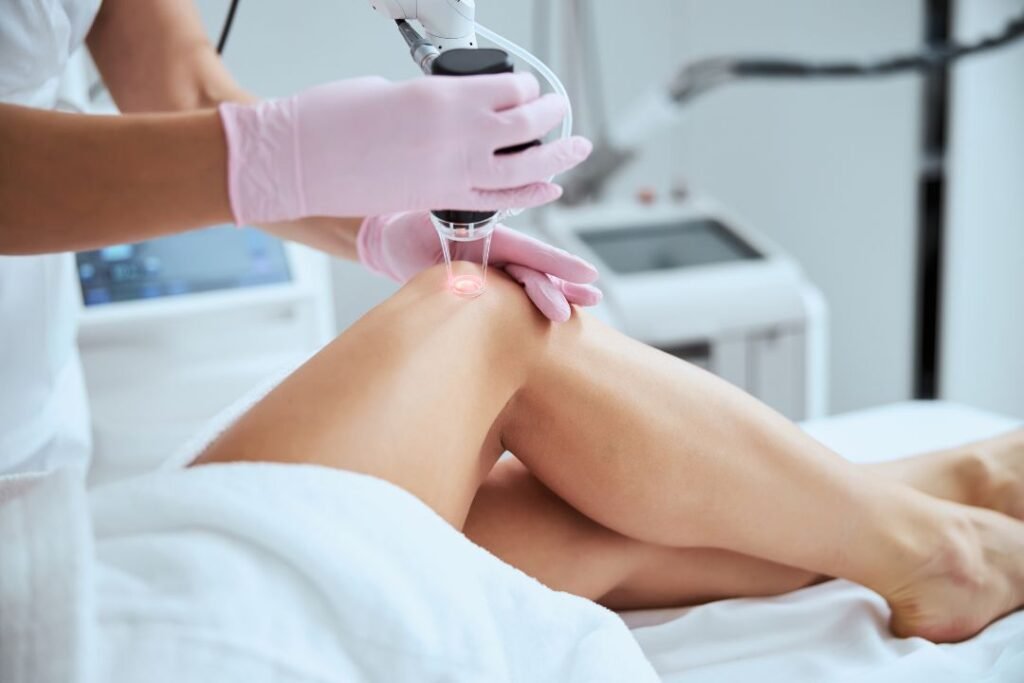Pregnancy is a beautiful time in a woman’s life but it can also come with its fair share of skin changes. Broken veins on the face are a common problem during pregnancy, leaving many women feeling self-conscious and embarrassed about their appearance. These broken veins, also known as spider veins or telangiectasias, are typically caused by increased pressure on the blood vessels and higher levels of circulating hormones during pregnancy. While they may be an unsightly addition to your skin, managing them is possible with the right strategies. In this blog post, we will discuss some practical ways to manage broken veins on your face during pregnancy. We will cover everything from preventative measures to safe treatment options during pregnancy so you can feel confident and comfortable in your skin. It is important to note that while these veins are generally harmless and disappear after pregnancy, they can sometimes indicate an underlying condition. As always, it is best to consult with a healthcare provider if you experience any discomfort or unusual changes in your skin or body related to them. If left untreated, these conditions could worsen and cause further health problems.
1. Maintain a Healthy Diet
Maintaining a healthy diet is crucial when managing broken veins on your face during pregnancy. Consuming foods high in vitamins C and K can help strengthen your blood vessels and reduce the appearance of broken veins.
Citrus fruits, leafy green vegetables, tomatoes, and broccoli are all excellent sources of vitamin C. Choose foods like leafy greens, such as kale and spinach, Brussels sprouts and cabbage for vitamin K. Avoiding foods high in salt and increasing your water intake can also help reduce swelling, which may contribute to broken veins.
It is essential to consult with your doctor or a registered dietitian to create a personalized nutrition plan that addresses your individual health needs during pregnancy.
2. Stay Hydrated
During pregnancy, many women may experience broken veins on their faces. While this is a common concern, there are ways to manage this condition and prevent its worsening. One factor that can help manage broken veins on your face is staying hydrated.
Proper hydration can improve blood circulation and prevent blood vessels from dilating, which can contribute to the formation of broken veins. Drinking ample amounts of water and avoiding drinks that can dehydrate the body, such as alcohol and caffeine, can help keep the skin supple and healthy. Aim for at least eight cups of water daily to keep your body hydrated. Remember, staying hydrated is essential for managing broken veins and the overall health of pregnant women and their developing babies.
3. Wear Sunscreen
During pregnancy, hormonal changes can increase broken veins on your face, also known as spider veins. While they are generally harmless and tend to fade after childbirth, you may feel self-conscious about their appearance. One of the best ways to prevent them from worsening or appearing in the first place is to wear sunscreen.
Exposure to UV rays can cause damage to your skin and weaken the blood vessels under your skin, leading to broken veins. Therefore, it is essential to protect your skin with a broad-spectrum sunscreen with an SPF of at least 30, especially if you plan to spend time outdoors. Remember to reapply every two hours and wear a wide-brimmed hat or seek shade during peak sun hours for extra protection.
4. Avoid Excessive Heat and Cold
When dealing with broken veins on your face during pregnancy, avoiding excessive heat and cold is crucial as it can exacerbate the condition. This includes avoiding hot showers, baths, saunas, steam rooms, and freezing temperatures.
It’s best to stick to lukewarm showers and keep your face’s skin protected from the elements, especially during harsh weather conditions, such as wind and extreme heat. Taking these precautions can help minimize the appearance of broken veins and prevent further damage to your skin.
5. Seek Medical Advice for Treatment Options
If you are experiencing broken veins on your face during pregnancy, seeking medical advice is crucial in managing the condition. While broken veins are a common occurrence during pregnancy due to changing hormone levels and increased blood flow to the face, they can also be a sign of an underlying medical condition.
A medical professional can diagnose the root cause of the broken veins and recommend a treatment plan to manage the symptoms. Depending on the severity of your condition, treatment options vary from topical creams and home remedies to laser therapy or surgery. Only a licensed medical professional can assess your situation and provide the appropriate advice and guidance for the best course of treatment. Therefore, seeking medical advice is essential to effectively manage broken veins on your face during pregnancy.
Conclusion
Broken veins on the face during pregnancy can be frustrating and challenging, but several options are available to help alleviate the symptoms. Pregnant women can safely and effectively manage their broken veins by using gentle skin care products, avoiding harsh chemicals and extreme temperatures, and consulting a dermatologist.
It’s important to remember that while these treatments may provide temporary relief, they will not cure the underlying cause of broken veins. Therefore, it’s essential to take preventive measures to reduce the likelihood of broken veins occurring in the first place.


